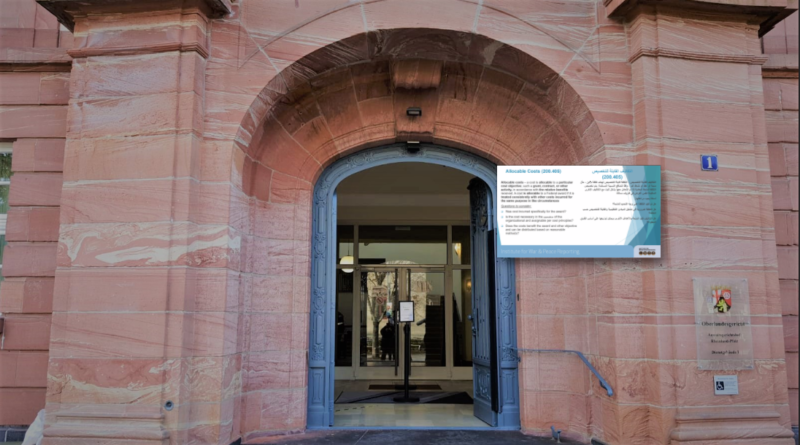Koblenz Trial 24.06.2021: Syrian police officer refused to suppress demonstrations or use violence against demonstrators
Written By Luna Watfa
Translated to English by Diane Lockyer
« As police officers we received instructions on how to act during those first demonstrations and were told in written statements not to use weapons on demonstrators.
« Verbally » we were told they should be suppressed in any way possible and to be sure they were not documented or filmed so they could not be seen outside Syria. »
On 24/06/2021, the witness who was a former police chief in Syria told the judges he had lost his job because he refused to use violence against demonstrators.
The witness had been in Germany since 2013 after managing to get out of Syria despite the restrictions the regime imposed on him. He told the judges about his former acquaintance with the accused, Anwar Raslan, as the two had met thirty years earlier when the witness was a police officer in the Immigration and Passport Department and Raslan was still a university student at the Faculty of Law at the same time he was working in the same Immigration and Passport Department as he was.
At that time, the accused had applied for leave to sit his university exams but his administration refused so he turned to the witness, the police officer, who was able to secure him his leave for the « accused » by virtue of his position. Many years later, Raslan, and the witness’s son met at a language course in Germany, and the accused told him that he knew his father who had done him a favour earlier on. The former police officer and Raslan later met in a café where the accused spoke about his defection.
When asked about his reasons for his departure from Syria, the police chief began by describing how the police were supposed to act during the first demonstrations. They were told to suppress them in certain ways and in public instructions they were told not to use weapons.
However, verbal instructions “from under the table” so to speak, to police officers stated that demonstrations should be suppressed in any way possible and to be sure they were not documented or filmed so they could not be seen outside Syria.
After the police officer refused to participate in suppressing demonstrations, he was referred to the Damascus Studies Office, an office responsible for investigating every officer who did not carry out orders and the appropriate decision was then taken in his regard.
The police officer was accused of not obeying orders, arrested and referred to the military courts where he was dismissed from his job, put into early retirement, banned from travelling and accused of collaborating with the revolutionaries.
With the help of some friends, he was able to leave Syria.
When the judges questioned him about Raslan’s character, a person he had known for thirty years, he replied that he was ambitious and did not intend remaining in the ranks of a first assistant. He was later assigned to State Security because he was among the most successful at the Police College. The witness had no further contact at all until he met him in Germany.
As for their meeting in Germany, he added they used to meet almost once a month in the presence of other people. They avoided talking about their previous jobs but Raslan was the most conservative among them and he only talked about his social concerns. Then one day he noted that he had gone to Jordan after quitting his job and later worked with the Coalition. It was there a Coalition member, Riad Seif, helped him come to Germany due to his good relationship with the German embassy.
The defense lawyer asked him what he knew about Riad Seif’s story. The witness replied that five years earlier, when Raslan came to Germany they asked him how he had come and one of those present answered that Riad Seif brought him. When asked why Riyad Seif had brought him, Raslan replied that several years earlier, Seif was detained in Branch 251 and he had helped him so he had returned the favour.
The defense attorney for the accused sought to make a comparison between the witness’s situation as a police officer who refused to obey orders and quit, and his accused client, an intelligence officer, who did the same thing. The witness replied that he refused to compare the two and that the two situations were not the same at all because the intelligence officer must implement the regime’s orders and follow its policy. He is under more supervision, devotes his life to his profession, and cannot resign. As for the police officer, he is far from being involved in politics and the state. His work is dependent on the law only. When he takes off his uniform, he is like any other civilian and does not enjoy any exception, and his resignation is acceptable if he submits it.
During his answer to the questions of the parties to the case, the witness confirmed the repression and totalitarianism of the Assad regime and that he was aware of what was happening to the detainees and the inhuman conditions they were subjected to inside the detention centers.

